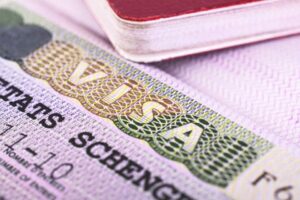The European Council has published a report outlining their conclusions regarding Belarus, the Belarusian elections, and the treatment of the Belarusian people at the hands of authorities.
The Council has published their report in the first place because they have found the elections in Belarus to have been fraudulent. The subsequent response by the citizens of Belarus was to protest, at which authorities have used excessive violence against the protestors, further undermining the legitimacy of the elections.
In response, the EU has imposed sanctions against Belarusian officials responsible for the fraudulent elections and the violent crackdown on the protests. The sanctions consisted of travel bans and asset freezes against those individuals responsible for the aforementioned abuses.
The EU will also “scale down” bilateral cooperation with Belarusian authorities at the central level and increase the EU’s support of Belarusian people and civil society.
In addition, the EU will also no longer be directing financial assistance towards Belarusian authorities or the state; instead, assistance will be directed towards non-state, regional, and local actors and organizations.
“[The EU will] Recalibrate bilateral financial EU assistance to Belarus in order to ensure it benefits the population at large notably by directing it to the maximum possible extent away from central authorities and towards non-state, local and regional actors, including through cross-border cooperation programmes,” the report reads.
The EU has made financial resources available immediately for victims of violence, civil society organizations, and independent media organizations. “Urgent and medium-term support” will likely also be given to organizations for Belarusian civil society, including youths, vulnerable populations, independent media, and the health sector.
Fortunately, the EU has decided to keep many important visa facilitation programs for Belarusian people in place. Nationals of Belarus will be still have the opportunity to participate in European exchange programs like Erasmus+, Horizon Europe, or Eastern Partnership initiatives.
“The Council underlines the importance of people-to-people contacts. The conclusion of the visa facilitation agreement was an important step in this regard. Belarusians will continue to be offered possibilities to participate in European exchange programmes such as Erasmus +, Horizon Europe or under Eastern Partnership initiatives. The EU will continue supporting the Belarusian University in exile: European Humanities University in Vilnius and will offer additional scholarships and mobility schemes,” the report reads.
A final note in the report, which you can read by clicking this link, is that the EU is impressed by the Belarusian peoples’ toughness in the face of adversity imposed by their government.
“The Council remains impressed by the perseverance of the Belarusian people and their commitment to a democratic future of their country. The people of Belarus deserve better and their demand for new free and fair elections should be answered positively. Only an inclusive national dialogue with broader society, in particular the Coordination Council, can lead to a peaceful and sustainable solution of the crisis. The EU expects that all partners of Belarus support this dialogue. The EU supports this objective and stands with the people of Belarus,” the report reads.
At the time of writing this article, Belarusian authorities have not yet responded to the EU’s report.










